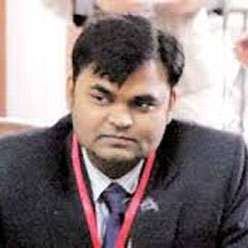
Jawahar Lal Nehru University Students Union (JNUSU) is one of the finest student movements in the world, not least because regardless of the leadership, it never loses sight of national and international politics.
When I was the president of JNUSU we successfully led the campaign for scholarships for research scholars. To back up the demand, we did a survey proving that lack of scholarships was forcing students to take up part-time jobs, which ultimately affected the quality of their research. Similarly, when the reservation for other backward classes was implemented we countered, intellectually and politically, all the arguments put forth by organisations opposed to it. In fact, every generation of JNUSU has its own set of achievements to narrate.
Still, unfortunately, mainstream political forces have continuously attacked this very democratic, progressive and secular institution. Right-wing groups, which have always faced stiff resistance on the campus, unhesitatingly brand the JNU's students and faculty members as "anti-national" even though the JNU alumni are part of their organisational structures and are respected for their sincerity and work.
The Congress, which too has struggled to make an impact in JNU, has its own set of grievances, and has never let goan opportunity to attack the university and its student politics. Many in the JNU still believe that the JM Lyngdoh Committee's recommendations for election reform were a ploy by the Congress to destroy the JNU's student movement. Yet, as with right-wing groups, some of the more capable and honourable people in the Congress have come from the JNU. Indeed, the post-Indira Gandhi Congress has relied heavily on the intellectual heft of the JNU alumni and faculty members for the articulation of its ideological positions.
At times, even the leftist groups, which dominate the campus politics, have shunned their activists from the JNU because they dared to question political decisions. A few years ago, the Students Federation of India, the student wing of the CPI(M), expelled its entire JNU unit after some of them opposed the party's growing bonhomie with the Congress. As if to prove them right, the CPI(M)-Congress alliance was recently rejected by the voters of Bengal.
The JNU student community is often portrayed as being eccentric and rebellious, but fundamentally, most of the students are just conscientious, patriotic citizens who are committed to the growth and true development - casteless, equitable, secular and modern - of the country. These noble ideals bring them in conflict with those who benefit politically from the status quo and are thus opposed to meaningful social, economic and political change.
But progressive change is inevitable, and most of the ideas that the JNU's students discuss over endless cups of tea at Ganga Dhaba are eventually accepted, and often implemented, by the national political elite. Not for nothing do JNU students say that 'what JNU thinks today, India thinks tomorrow'.
It's in this context that the recently declared JNUSU election result is significant. For one, it suggests that the BJP regime is losing popular support. The government which came to power in 2014 riding on the heightened hopes and aspirations of the middle class has become captive of its own empty rhetoric. Its apparent failure to distinguish itself from obscurantist, communal and casteist elements is not going down well with the common man.
In order to justify this action, Home Minister Rajnath Singh went on record saying he had intelligence that Pakistan-based terrorists were happy with the political activities taking place in the JNU. Kanhaiya was attacked in police custody and, a BJP legislator was caught on camera thrashing the peaceful protestors from the JNU. The RSS, self-obsessed with its warped idea of "nationalism", even failed to see that JNU alumni are serving in the bureaucracy. Labelling JNU students as "anti-national" is self-defeating, and anyone who believes this canard has no idea what this country is.
The rejection of the ABVP by the JNU student community is a warning for the BJP. The ruling party and its supporters may dismiss the result as "votes of communists", but they would do well to remember that "what JNU thinks today, India thinks tomorrow".
First published: 12 September 2016, 4:00 IST







![BJP's Kapil Mishra recreates Shankar Mahadevan’s ‘Breathless’ song to highlight Delhi pollution [WATCH] BJP's Kapil Mishra recreates Shankar Mahadevan’s ‘Breathless’ song to highlight Delhi pollution [WATCH]](https://images.catchnews.com/upload/2022/11/03/kapil-mishra_240884_300x172.png)

![Anupam Kher shares pictures of his toned body on 67th birthday [MUST SEE] Anupam Kher shares pictures of his toned body on 67th birthday [MUST SEE]](https://images.catchnews.com/upload/2022/03/07/Anupam_kher_231145_300x172.jpg)






